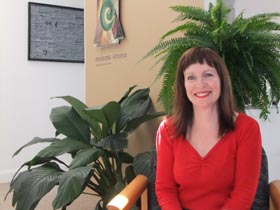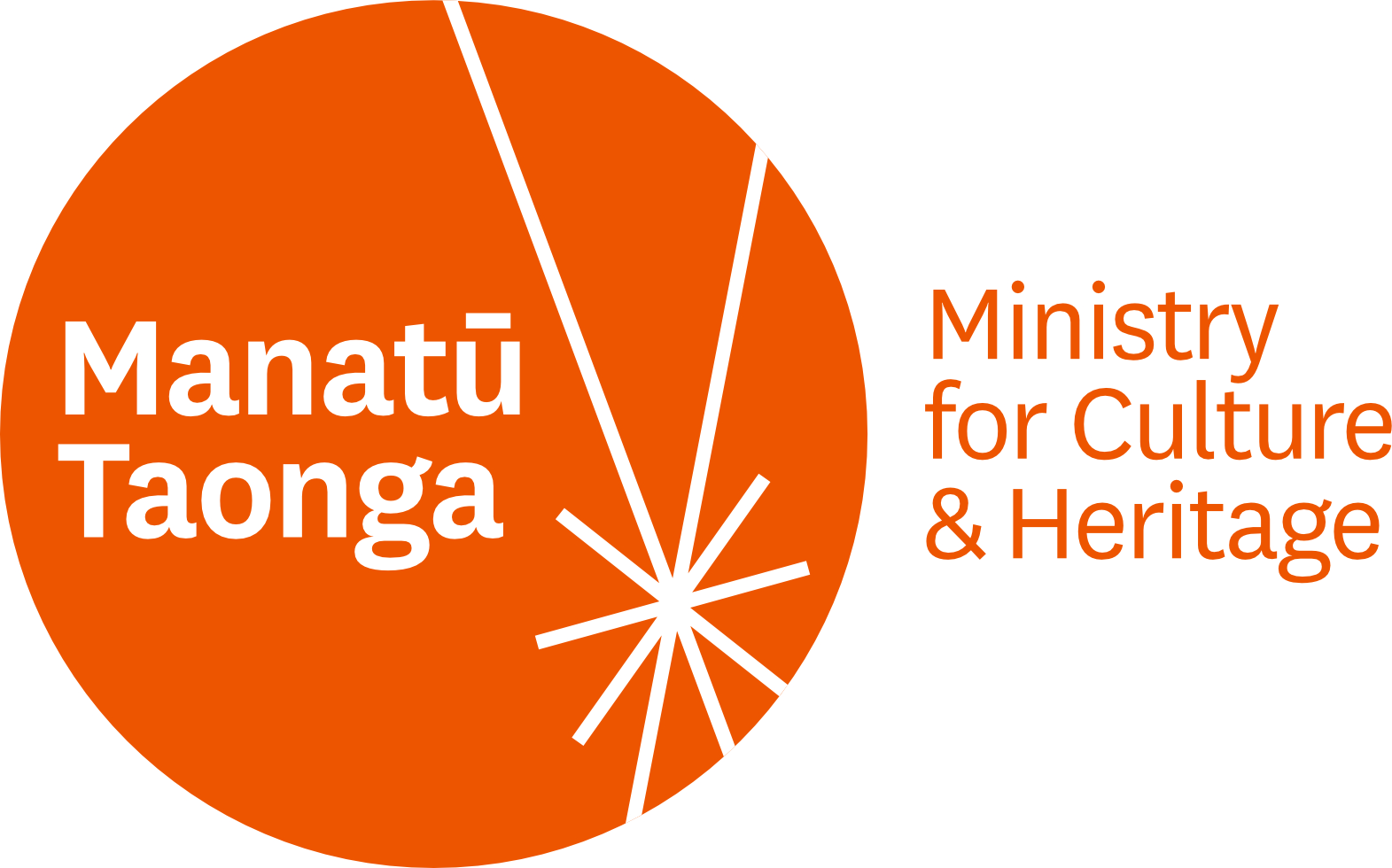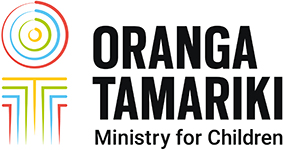Community Development and Wellbeing
This programme is about building relationships between and within communities to foster access to and participation in the arts. It's also about building the capacity of the sectors we work with to provide ongoing access to the arts. The result of this will be enhanced individual and community wellbeing.
Introducing Pippa Sanderson: a great fit
7 March 2011
“You’re looking for me. This is my job,” thought Pippa Sanderson, when she saw the job advertisement for Community Development Advisor and Events Co-ordinator at Arts Access Aotearoa.
“It brings together all the different strands of what I’ve been doing for years,” she says. “For example, arts and community development, working with a diverse range of people, managing events, generating ideas for projects, making connections between people and developing relationships.”
 Pippa took up her new role this month and says she is looking forward to continuing the research on creative spaces, instigated by her predecessor, Emma Chinnock. “I’m very keen to visit creative spaces and talk to the staff and artists to find out how Arts Access Aotearoa can best support them. Despite all the various ways we can now communicate – phone, email, Facebook, Skyping – there’s nothing like face to face meetings.”
Pippa took up her new role this month and says she is looking forward to continuing the research on creative spaces, instigated by her predecessor, Emma Chinnock. “I’m very keen to visit creative spaces and talk to the staff and artists to find out how Arts Access Aotearoa can best support them. Despite all the various ways we can now communicate – phone, email, Facebook, Skyping – there’s nothing like face to face meetings.”
Pippa’s belief in working for social change is part of her family ethos. “Working at Arts Access Aotearoa means I am able to use my skills and experience to apply that concept in practical ways,“ she says.
An experienced project co-ordinator and fundraiser, Pippa is also a visual artist, arts educator, curator and writer. She has been exhibiting her work in New Zealand and overseas for many years – most recently in a collaborative work with Kirsty Lillico, called Screen Capture in Brisbane (2011), and Surface in Melbourne (2010), Wellington (2009) and Dunedin (2008).
Her most recent curatorial project is The Blue Room: Thirteen Artists Respond in a Psychic Way, first shown in Dunedin at the Blue Oyster Gallery in 2008 before touring to Te Manawa, the Film Archive in Wellington, Hastings City Art Gallery, and on to Auckland in 2011.
Achieving our goals
Arts Access Aotearoa works within a community cultural development framework, which aims to strengthen relationships both between and within communities, and create awareness among community members that our differences are fundamental to our identity.
This programme helps us achieve two of our strategic goals:
- Building the capacity of the sectors we work with to deliver access to the arts
- Building and maintaining strategic partnerships to make best use of Arts Access Aotearoa’s resources
Activities within this programme
Creative spaces network
There are more than 85 creative spaces throughout New Zealand. These are community arts organisations that provide oppportunites to make art for people with limited opportunity to do so.Arts Access Aotearoa provides these spaces with information and advice; networking opportunities; and advocacy and profiling. Stories on our website and in the media, our e-news and an online directory profile the work of creative spaces.
Capacity-building workshops
We run professional development and capacity-building workshops for our stakeholders.
In late 2009, Arts For All: opening doors to disabled people was published by Creative New Zealand in partnership with Arts Access Aotearoa. This publication was followed by a series of workshops (Wellington, Christchurch, Dunedin, Auckland) in partnership with local councils. The publication and workshops were aimed at mainstream arts, art organisations and venues to provide practical and long-term ways to increase access to the arts, market events to the disabled community and build new audiences.
As a result of this work, Arts Access Aotearoa and Wellington City Council are working with arts organisations to ensure the Arts for All project continues to have an impact. Cluster groups (i.e. theatre and dance, art galleries and museums, touring, performing art venues) have been formed to share information, and provide support in the development and implementation of accessibility action plans. The Wellington partnership model is a pilot that we hope to develop in other regions.
Hui and forums
A series of lunchtime discussions, led by IHC advocate Marguerite Vanderkolk and facilitated by Arts Access Aotearoa, were held at Toi Poneke in early 2010. This resulted in a national one-day hui, Journeys to Inclusion in the arts Community, held in Wellington in September to coincide with the THC Telecom Art Awards. The day consisted of presentations by guest speakers and facilitated workshops, based around the theme of arts and inclusion.
Also in September, Arts Access Aotearoa supported the Creative Access Network (CAN) forum, held at the Interwoven conference in Auckland. The one-day forum was aimed at the community arts sector. With funding from ASB Community Trust, Arts Access Aotearoa provided administrative support and a workshop on inclusive arts practice and governance.
Prison Arts Advisory Service
This service was introduced in November 2008 in partnership with the Department of Corrections to develop a New Zealand Prison Arts Strategy. The strategy has been completed and Arts Access Aotearoa is continuing to build networks, write stories promoting the arts as a tool for change in prisons, and researching international practice. Visit our prison arts page for stories.
Community development projects
Arts Access Aotearoa supports and promotes community organisations working to provide opportunities for creative expression. We do this by facilitating partnerships between the community arts sector and professional arts sector, and providing advice through our Arts Access Aotearoa Information Service.
Here are some recent examples of community development projects we’ve been involved in.
- Eko Theatre: we provided funding advice and supported the Southern Corridor Project as an umbrella organisation to make applications for funding of its Southern Corridor Project. The central concern of this project is to present the personal perspectives of the MÄori and Somali communities on identity, and their relationship with one another and with the land. The project culminates in March 2011 with a public presentation.
- A Slightly Isolated Dog: we worked with Wellington theatre maker and director Leo Gene Peters and Hospice New Zealand to provide legal advice (thanks to our partner Chapman Tripp) and formalise this partnership. Leo is working with staff, patients and families using hospice services to create a performance piece based on their stories. The work was presented for the first time to delegates at a Hospice New Zealand conference at Te Papa in November 2010 and public performances are planned for early 2011. We are also promoting the performances on our website and to our networks.




